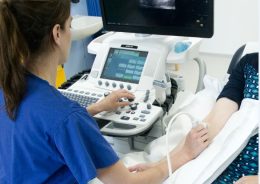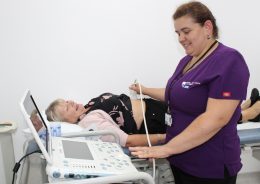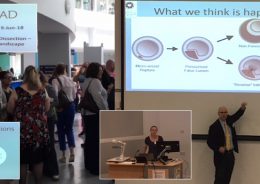News/Events

Kidney dialysis patients needed for Cambridge research study
Cambridge researchers, with support from NHS Blood and Transplant Clinical Trials Unit and funded by the National Institute for Health Research, are asking patients with failing kidneys who opt to have a fistula Read more

A healthy lifestyle cuts stroke risk, irrespective of genetic risk
People at high genetic risk of stroke can still reduce their chance of having a stroke by sticking to a healthy lifestyle, in particular stopping smoking and not being overweight, Read more

Brain training app helps reduce OCD symptoms, study finds
A ‘brain training’ app could help people who suffer from obsessive compulsive disorder (OCD) manage their symptoms, which may typically include excessive handwashing and contamination fears.
In a study published Read more

Many cases of dementia may arise from non-inherited DNA ‘spelling mistakes’
Only a small proportion of cases of dementia are thought to be inherited – the cause of the vast majority is unknown. Now, in a study published today in the journal Nature Communications, Read more

Genetic tool to predict adult heart attack risk in childhood
People at high risk of a heart attack in adulthood could be spotted much earlier in life with a one-off DNA test, according to new research part-funded by the British Heart Foundation and Read more

NIHR researcher nominated for The Sun’s Who Cares Wins health awards
NIHR-funded researcher Professor Roman Hovorka has been nominated for the Groundbreaking Pioneer or Discovery category of The Sun’s Who Cares Wins health awards for his research developing an artificial pancreas for people with Read more

The UK’s leading mental health experts unite to solve treatment challenges
The country’s top mental health researchers and clinicians are joining forces to solve some of the greatest mental health challenges facing the UK public.
The group of investigators, based in leading universities and Read more

EDGE user training for CUH research staff
In March 2017, an announcement was made by the NIHR that instructed each Clinical Research Network (CRN) to obtain a Local Portfolio Management System on behalf of their partner organisations. The system chosen Read more

Finding meaningful patterns in the complexity of ovarian cancer
Patterns of genetic mutation in ovarian cancer are helping make sense of the disease and could be used to personalise treatment in future, according to a study published in Nature Genetics.
Researchers from Read more

New research shows most women unlikely to benefit from national AAA screening
New research published in the Lancet and funded and supported by the National Institute for Health Research (NIHR) has come to important conclusions about screening women for abdominal aortic aneurysms (AAAs).
The NHS Read more

Baby’s sex affects the mother’s metabolism and may influence the risk of pregnancy-related complications
The sex of a baby controls the level of small molecules known as metabolites in the pregnant mother’s blood, which may explain why risks of some diseases in pregnancy vary depending whether the Read more

Patient group shows power of working together
“Informative and inspirational”. For Cambridge BRC’s Georgina Norris, those two words summed up this year’s Beat SCAD conference, which took place in Birmingham earlier this month.
SCAD – or Spontaneous Coronary Artery Read more

Second stage of EDGE training for research staff
Since the launch of EDGE in 2017, 230 users have been trained how to use the cloud-based software platform. EDGE system captures the clinical trials data and supports the delivery and maintenance of Read more

Dr Amos Burke wins Windrush70 award
Congratulations to one of our researchers and consultant paediatric oncologist Dr Amos Burke, who won the research and policy development award at the NHS Windrush70 awards on the 12th June.
Seven members of Read more

Cambridge researchers put on a blooming good show
Cambridge researchers studying the HIV virus have helped create a garden at this year’s Chelsea Flower Show to highlight the plight of young people living with the condition.
Cambridge-based Professor Andrew Lever is Read more

Six months of Herceptin could be as effective as 12 months for some women with HER2 positive breast cancer
For women with HER2 positive early-stage breast cancer taking Herceptin for six months could be as effective as 12 months in preventing relapse and death, and can reduce side effects, finds new research.
Read more

Film explains benefits of artificial pancreas
In this short film Dr Roman Hovorka from the University of Cambridge talks about his team’s ground-breaking research into the development of the artificial pancreas, a closed-loop system for managing type 1 diabetes Read more

Short film shows what it’s like to take part in a study as a healthy volunteer
Have you thought about signing up to the NIHR BioResource as a healthy volunteer?
As far as clinical research is concerned, it could be one of the best things you ever do!
When Read more

Patient and Public Involvement training for researchers
The NIHR Cambridge BRC is offering all research staff a training session on Patient and Public Involvement.
The half-day session will provide staff with an introduction to Patient and Public Involvement (PPI) Read more

Drinking more than five pints a week could shorten your life, study finds
Regularly drinking more than the recommended UK guidelines for alcohol could take years off your life, according to new research from the University of Cambridge. Part-funded by the British Heart Read more


